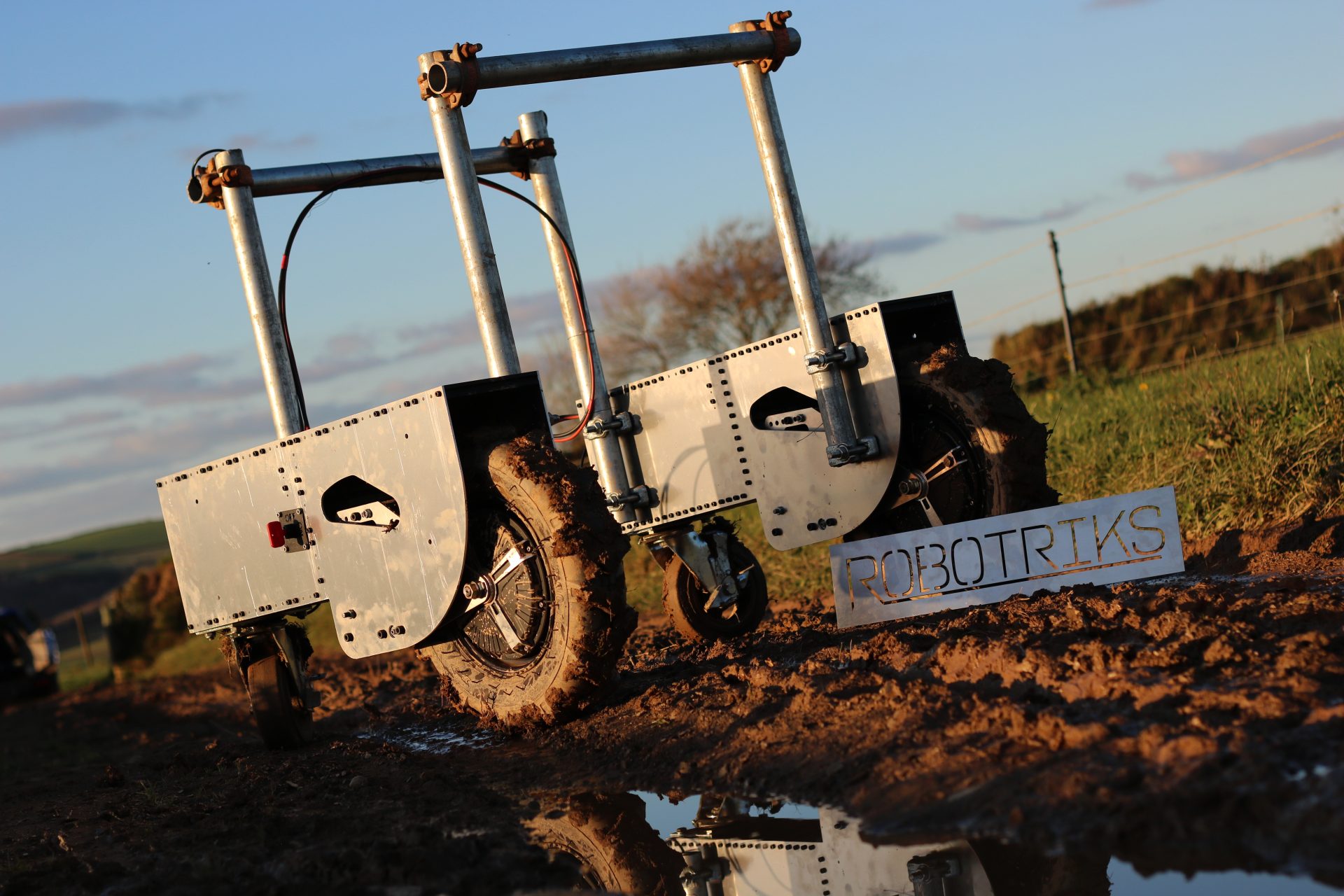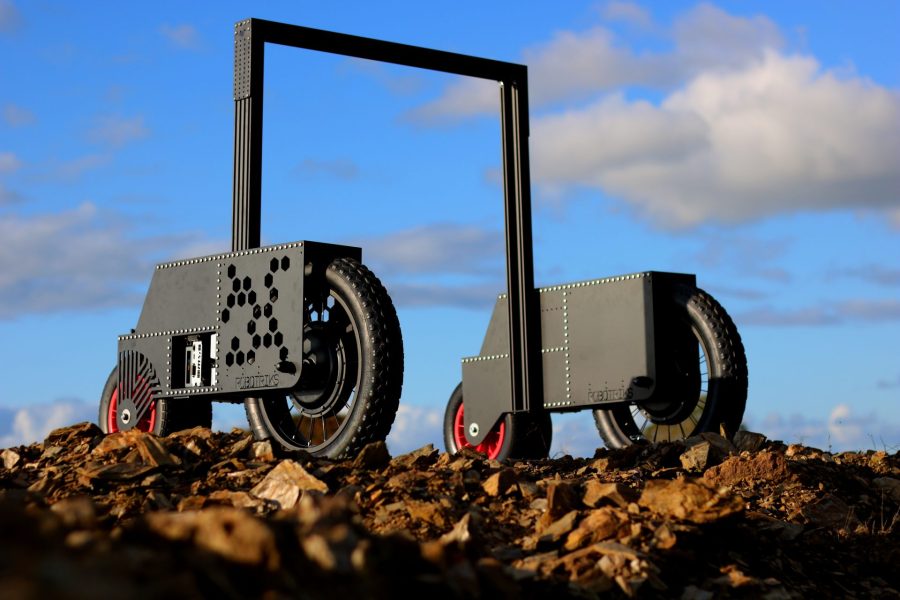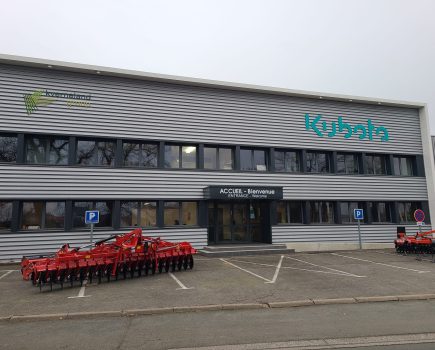The Robotriks Traction Unit (RTU) is described by its makers as an affordable autonomous platform that is ready to work within a few hours.
Developed by Robotriks, the device comprises a large drive wheel, suspension and computer, held together by galvanised pipe on which a variety of implements can be towed or attached, including soil probes, robotic harvesting arms or depth cameras for 3D crop rendering.
“The aim is to create a system which is affordable and reliable,” says Robotriks director Jake Shaw-Sutton. “The RTU costs just £7,000 – almost a tenth of the cost of most others on the market.”
Mr Shaw-Sutton, and his co-founder Khaian Marsh both grew up on farms, and the RTU has been put through its paces in real life situations, including soil compaction testing. “It can be used for a range of things from crop monitoring to harvesting crops like cauliflowers,” adds Mr Shaw-Sutton, who is also a senior robotics technician at the University of Plymouth.

All data is processed locally, on board the RTU. “That was a decision we made after speaking with farmers; they wanted to know that only they had access to their data and it wasn’t going off to the cloud.”
The battery-powered vehicle can carry several hundred kilos and is restricted to run at a maximum speed of 16km/hr (10mph).
The batteries last for up to 24 hours. “Currently you just plug in to charge it, but we are considering having a docking station, because all of the power can be harvested from a single solar panel.”
Fully adjustable to any height and width, the RTU works either by remote control or autonomously using drones. There are emergency stop buttons on the unit and a remote kill switch.
Robotriks is one of a cluster of new technology companies at the University of Plymouth. Funded by Agri-tech Cornwall and an innovation grant from the Cornwall Development Company, while still in the test phase, the first commercial machines could be available within a year.





